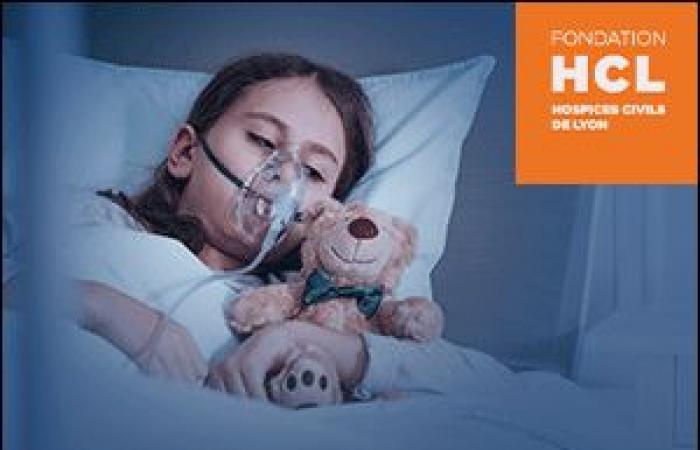When winter sets in, it brings with it its joys and challenges. While some love cozy evenings under a blanket, for others, this season rhymes with isolation and low morale.
Between the cold which discourages going out and the shortened days which deprive us of light, it is not uncommon to feel alone, sometimes even without realizing it. However, this winter loneliness, often coupled with slight depression, can take a heavy toll on our mental health.
Winter, this season when we cut ourselves off (a little too much) from others
With the arrival of low temperatures, invitations become rarer and the desire to go out fades. According to a study published by Santé Publique France, 37% of French people say they feel more alone during the winter months. The reasons? Shorter days that affect our morale, inclement weather, and sometimes even a fear of getting sick.
The impact of loneliness is not just emotional. Indeed, research shows that social isolation can increase the risk of mental health disorders by 32%, including episodes of depression or anxiety. Without forgetting the consequences on physical health: hypertension, sleep disorders and weakening of the immune system.
Winter blues and loneliness
Winter loneliness is not trivial, because it can be linked to a well-known phenomenon: winter depression. Also called seasonal affective disorder (SAD), it affects around 5% of the French population, and is directly influenced by the reduction in natural light in winter.
This lack of light can lead to:
These symptoms often add to the feeling of loneliness and reinforce a vicious circle from which it is difficult to escape.
Loneliness and mental health: why it is important to act
When loneliness sets in, our brain reacts as if it senses danger. This “inner alarm” causes the release of stress hormones, such as cortisol. In the long term, this can weaken our mental and physical health.
Elderly people, who are particularly vulnerable, are most affected by winter isolation. One in four French people aged 75 or over lives in worrying social isolation, according to the association Les Petits Frères des Pauvres. But young people are not spared: the CoviPrev study revealed that the pandemic has increased the isolation of 18-24 year olds, a group already experiencing high levels of anxiety and stress.
Preserve social connections despite the cold
Schedule regular appointments, even remotely
Cold, rain or snow can make going out unappealing, but that doesn’t mean the bonds have to crumble. Modern technologies offer a range of solutions to maintain convivial moments, even from your sofa.
- Video calls : according to the Journal of Medical Internet Research show that video interactions can reduce feelings of loneliness by 20 to 30% among isolated adults. Zoom, Skype or even WhatsApp make it easy to keep in touch.
- Remote activity ideas :
- Organize a virtual aperitif where everyone shares a friendly moment with their favorite drink.
- Offer a simultaneous movie night via tools like Teleparty (formerly Netflix Party), which synchronizes viewings and allows live chat.
- Why not try an online game? Virtual quizzes or escape games are fun options for sharing laughter, even from a distance.
These regular meetings create a social routine, a key element for emotional well-being, especially in winter.
Find suitable outdoor activities
Even in winter, it is important to enjoy fresh air and natural light, even if it is less intense. A simple walk of 20 to 30 minutes a day can reduce symptoms of depression by 35%, according to a study by INSERM.
- Why walk?
- Walking promotes the production of serotonin and endorphins, two key hormones for well-being.
- In winter, exposing yourself to natural light, even weak light, helps regulate our biological clock and fights the effects of seasonal depression.
- How to make outings enjoyable?
Join a community or interest group
Nothing like sharing a passion to break isolation. In winter, many activities go digital, offering a multitude of possibilities for creating connections, even remotely.
- Examples of communities to join :
- An online book club through platforms like Meetup.
- Live yoga or sports classes, where the collective atmosphere boosts motivation.
- Forums or groups on social networks around your interests (cooking, DIY, photography, etc.).
According to an IFOP survey, 30% of French people say they feel less alone when they join an active social group. These communities allow us to exchange ideas, motivate each other and sometimes even form great friendships.
Take care of your mental health
Isolation can take a toll on morale, and it’s important not to ignore the signs of prolonged depression. Fortunately, solutions exist to get support and find a smile again.
- The MonParcoursPsy system : This program, launched by Health Insurance, offers up to eight free sessions with a psychologist for people in difficulty. Accessible without too many formalities, it allows you to receive support quickly.
- When to consult?
- If you feel persistent fatigue.
- If your isolation becomes burdensome and impacts your daily life.
Taking care of your mental health is not a luxury, it is a necessity. Getting help is a courageous gesture that can change your daily life.
Focus on small gestures to keep in touch
Sometimes it’s the little touches that mean the most. A text message, a quick call or a postcard can have a huge impact.
- Why is it important?
- According to a study by the Fondation de France, 87% of people in a situation of isolation feel an improvement in their morale after receiving a simple message from a loved one.
- These gestures show that you are present, even from afar, and can encourage those close to you to do the same.
- Easy to implement ideas :
- Send a souvenir photo with a phrase like “Remember this moment! We should do this again.”
- Call a friend or family member to share a story from your day.
These exchanges, as brief as they are, remind us that distance does not erase links.
NAMELY
Nearly 11 million French people, or 20% of those over 15, feel alone, and 80% suffer from it, according to a study by the Fondation de France. The report, published for World Loneliness Day, January 23, 2023, calls for “destigmatizing” this discomfort, recalling that a “dense social life” does not always protect against loneliness.









